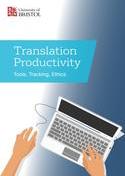Translation productivity report

This report examines perceptions of productivity and activity tracking in a study involving sixteen professional translators (nine freelance and seven in-house).
The translators integrated productivity tools into their work and reported weekly to the research team for a period of four months
The report’s key findings include:
- Productivity tracking can have benefits to individual translators if they retain control of the tracking.
- Translators mentioned several factors that can affect their productivity, many of which are not trackable within a CAT tool. It was felt that the emphasis usually placed on measures like word throughput or number of edits disregards many tasks (e.g., admin, troubleshooting, or manual text formatting), which risks providing an incomplete picture of translation.
- If misused, crude activity tracking measures can influence how the translation profession is conceptualised in the long term, by shifting perception from an intellectually complex activity to a mechanical transfer of linguistic content that is easily quantifiable.
- In the productivity self-assessments, freelancers were less satisfied than in-house translators about their productivity, with lower satisfaction especially after the coronavirus outbreak.
- External productivity tracking controlled by clients, if not transparent and consensual, can contribute to worsen existing imbalances of power in the client-translator relationship. Cloud-based work was identified as having the highest potential for ubiquitous tracking and potentially unfair practices.
Based on these findings, the report makes a number of recommendations which can be found in the full report, available to download below.
